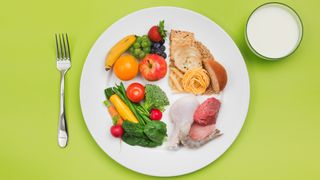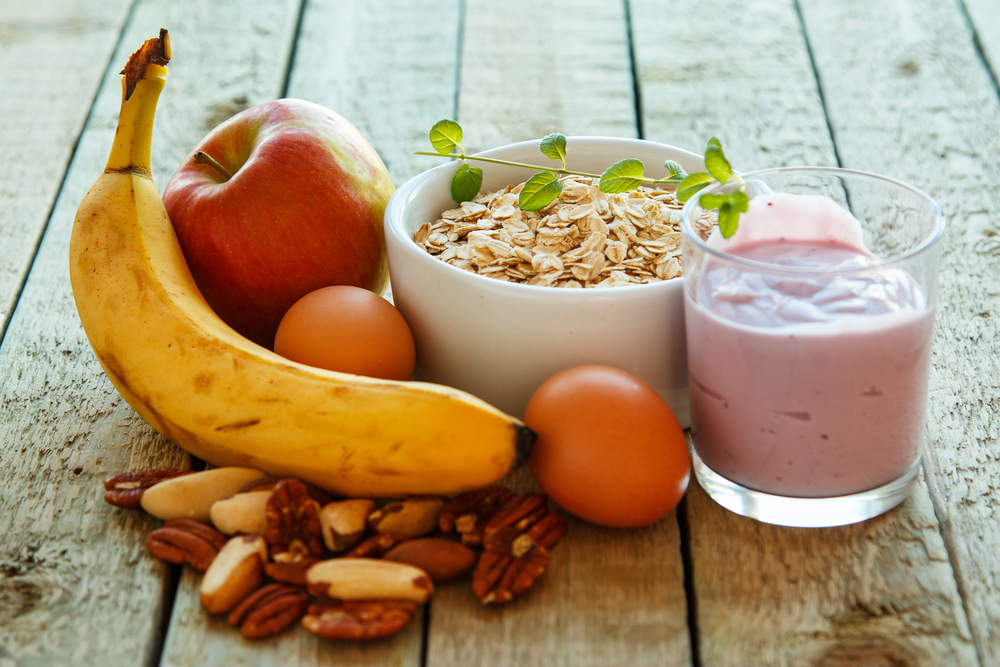Why a balanced diet is important for your health

- Home
- Help

You may be wondering why a balanced diet is important. The simple answer is that a healthy, balanced diet is an important part of maintaining good health and helping you feel better. While some groups of people, such as athletes, may need extra support with the best protein powders to promote muscle growth, most of us can get everything we need by making sure we eat a variety of healthy and healthy foods. various.
A balanced diet provides the fuel your body needs to function efficiently. Without a balanced diet your body is more susceptible to diseases such as heart disease, diabetes and cancer. Eating a variety of foods and cutting down on salt, sugar, and saturated fat is very important for your body to function properly.
If your diet is unbalanced and you eat foods that don't provide enough nutritional value, your diet will begin to decline. Studies have shown that 31% of the US population is at risk of at least one vitamin deficiency. There are many risks of nutritional deficiencies including digestive problems, anemia, and skin problems.
In this article, you will learn what you need for a balanced diet, why a balanced diet is so important, and tips to help you meet your nutritional needs on a daily basis.
What is a balanced diet?
"A balanced diet should ideally include five food groups," says Isabel Maples , registered nutritionist and spokesperson for the Academy of Nutrition and Nutrition for Living Sciences. "A single food group provides a specific group of nutrients. One group is no more important than another - each provides vitamins, minerals, fiber and key calories. But when one food group is consumed less, it becomes the most important link. weak of the chain. " "Focusing on it can help restore balance in the diet."
The dietary guidelines for Americans, created by the United States Department of Agriculture (USDA), recommend nutrient-rich foods that provide vitamins, minerals, and other healthy ingredients with low or low sugar, fat, saturation, and sodium.

The main elements that make up a healthy eating pattern include:
- Vegetables of all kinds: dark green; red and orange; beans, peas and lentils; starch; and other vegetables.
- Fruit, especially whole (not fruit juices).
- Cereals, of which at least half are cereals.
- Dairy products, including skim or skim milk, yogurt and cheese, and / or lactose-free versions and alternatively fortified soy and yogurt drinks.
- Protein foods, including lean meats, poultry and eggs; seafood; beans, peas and lentils; and nuts, seeds and soy products.
- Oils included vegetable oils and fats in foods such as seafood and nuts.
Nutritionist Lamorne Hollingsworth says variety is very important when it comes to eating fruits and vegetables. "With a minimum of five servings of fruit and vegetables a day," he says. "Everything is fresh, frozen, canned and dried. Eating a wide range of plant foods is great news for the health of our gut and microbiome, which thrives best when we consume a large selection, focusing on more. 30 different plant foods in the week is a big goal. ”Okay.
Nutrition guidelines also suggest limiting foods and drinks that are high in sugar, saturated fat, and sodium and limiting alcoholic beverages. Recommended limits:
- Added sugar: less than 10% of calories per day.
- Saturated fat: less than 10% of daily calories.
- Sodium: Less than 2,300 milligrams per day (and even less for children under 14).
- Alcoholic beverages: Adults who have reached the legal age to consume alcohol cannot drink or drink in moderation, limiting their consumption to two or fewer drinks per day for men and one or fewer drinks for women when drinking alcohol. Drinking less is better for health than more.
Why is it so important to eat a balanced diet?
The food we eat has a huge impact on our physical and mental health. The scientific relationship between food and health is well documented, and there is a lot of evidence that maintaining a healthy diet can help people achieve and maintain good health and reduce the risk of chronic disease.
A balanced diet provides the nutrients your body needs to function properly. Without a balanced diet, your body is more susceptible to disease, infection and fatigue.
According to the Center for Public Interest Science , four of the top 10 causes of death in the United States - heart disease, cancer, stroke, and type 2 diabetes - are directly related to diet.

Some evidence suggests a close relationship between diet and mood. In 2016, a study published in the journal Appetite found that a diet high in glycemic load can lead to increased symptoms of depression and fatigue. High-glycemic foods include many refined carbohydrates often found in sodas, cakes, white bread, and cookies. Vegetables, fruits and whole grains have a low glycemic load.
A healthy diet can also help maintain brain health. A 2015 study published in the journal Neurology, Psychiatry and Brain Research, identified nutrients and foods that protect against cognitive decline and dementia. Researchers found the following benefits: vitamin D, vitamin C and vitamin E, omega-3 fatty acids and fish.
Tips for a balanced diet every day
A healthy diet will include all of the recommended nutrients and food groups mentioned, but you will also need to balance them.
The feeding method is a useful way to remember how much to eat from each food group. Maples supports the USDA's " ChooseMyPlate " initiative, which recommends:
- Fill half a plate with fruit and vegetables.
- Fill a little over a quarter full with whole grains.
- Protein foods fill up to just under a quarter.
- Set aside the milk (or its substitute).
But individual needs change, so the USDA also offers an online MyPlate Plan tool where you can post your data to determine your individual needs.
Hollingsworth believes that the right balance comes when looking at products on the spectrum, as labeling products "good" or "bad" can lead to unhealthy restrictive habits. He told LiveScience: “It can be argued that a balanced diet that includes a healthy, daily diet that isn't too unhealthy is more important than the goal of perfection with all of our food choices.
"This approach allows people to nourish their bodies with healthy choices, but it also provides a positive place for our mental health. This way of thinking prevents the guilt that can be felt when eating regular, unhealthy food."
Help
Byrd, J., Murphy, R., Chappio, E., and McBurney, M. (2017). The risk of concomitant micronutrient deficiencies in children and adults in the United States. Nutrition, 9 (7), 655. https://www.ncbi.nlm.nih.gov/pmc/articles/PMC5537775/
Breymeyer, KL, Lampe, JW, McGregor, BA and Neuhouseer, ML (2016). Subjective mood and energy levels of healthy overweight and healthy overweight / obese adults in experimental diets with high and low glycemic load. Appetite, 107, 253–259. https://www.sciencedirect.com/science/article/abs/pii/S0195666316303221
Strasser, B., & Fuchs, D. (2015). The role of physical activity and diet in mood, behavior and cognition. Neurology, Psychiatry, and Brain Research, 21 (3), 118-126. http://www.barbara-strasser.at/wp-content/uploads/Neurology-Psychiatry-and-Brain-Research-2015.pdf
United States Department of Agriculture. (2020). Dietary Guidelines for Americans 2020-2025 https://www.dietaryguidelines.gov/sites/default/files/2020-12/Dietary_Guidelines_for_Americans_2020-2025.pdf
Why proper nutrition is important. (2018, May 17). Center for Science in the Public Interest. Retrieved April 14, 2022, from https://www.cspinet.org/eating-healthy/why-good-nutrition-important
Catherine is a freelance journalist who writes titles such as Verywell Health, Healthline, The Daily Telegraph, Refinery29, Elle and Vogue. He specializes in content relating to health, fitness, wellness and culture. Catherine has worked in the health and communications industry for ten years, creating easy-to-understand information for patients on a variety of health conditions.